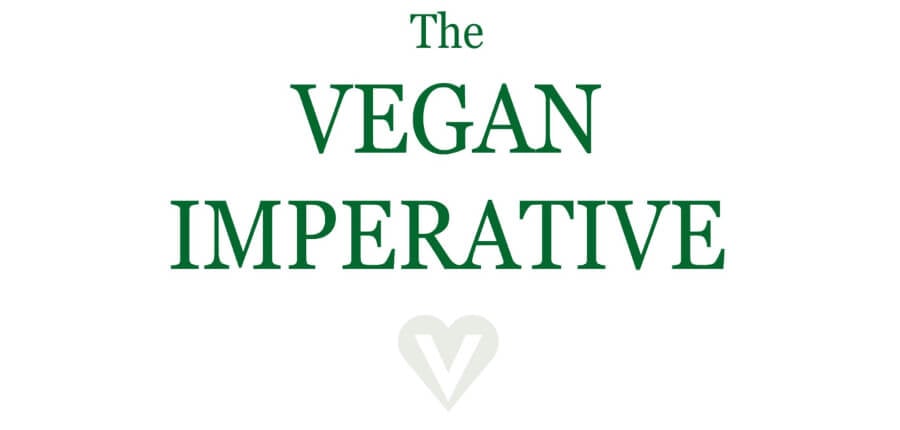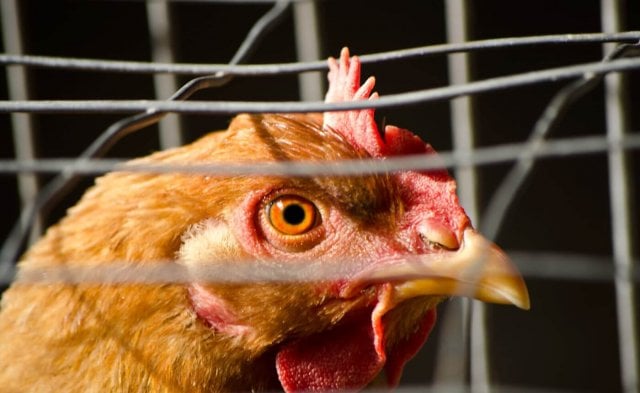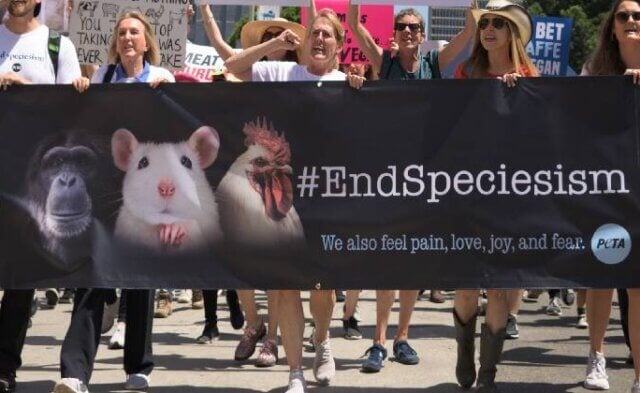In his new book, The Vegan Imperative: Why We Must Give Up Meat and Why We Don’t, former animal-law attorney and Executive Director of Vegan Action David Blatte lays out the compelling moral, environmental, and health-related reasons why everyone should go vegan. He also delves into the various reasons why more people don’t go vegan, despite knowing about all the benefits.
If you’re a longtime PETA supporter, you’ve likely heard the arguments in favor of going vegan before. What really makes The Vegan Imperative unique—and a useful tool for animal advocates—are Blatte’s explorations of the reasons why people keep eating animal-derived products despite claiming to care about animals and knowing the harm that these products cause.
Some of these reasons include denying personal responsibility (e.g., “So many other people still eat meat, so it won’t matter if I do, too”), societal normalization, avoidance of thinking about the issues, claiming that eating animal-derived products is natural (which Blatte thoroughly debunks), and only eating meat, eggs, and dairy in “moderation.”
When writing about the “humane meat” myth, Blatte points out, “Not causing suffering is important, but morality is more expansive than this. It includes abstaining from killing, which is a monumental harm. When you kill an animal, you take away that which is most precious to all beings, depriving her of the pleasures and joys inherent in life itself. The animal no longer suffers, but she has nevertheless been grievously harmed.”
Blatte’s experience as a lawyer is evident in his tight arguments and strong statements, yet he still manages to keep the book approachable and relatable. He opens by sharing his own awakening to animal rights, which began after his father was killed in a car accident when Blatte was a boy. This tragic loss sensitized him to others’ suffering, and he experienced a revelation: Other animals also suffer and fear death. He shares how he then overcame his cognitive dissonance and went vegetarian, then vegan (a change he credits to a PETA display about factory farms at his law school), and, finally, an animal rights advocate in all areas of his life.
The Vegan Imperative may not sway anyone who is still looking for an excuse to keep eating meat and other animal-derived products—but for people who are considering a vegan diet, who are motivated by ideals and logic, or who are looking for a push to help them take the leap, it could be just the helpful tool that they need.
This book is also an invaluable asset for people who are already vegan and working to advance animal rights, because of the insights that it offers into people’s hesitancy to go vegan. These revelations will be useful in shaping approaches to help others make the most compassionate decision and leave animals off their plates for good.





